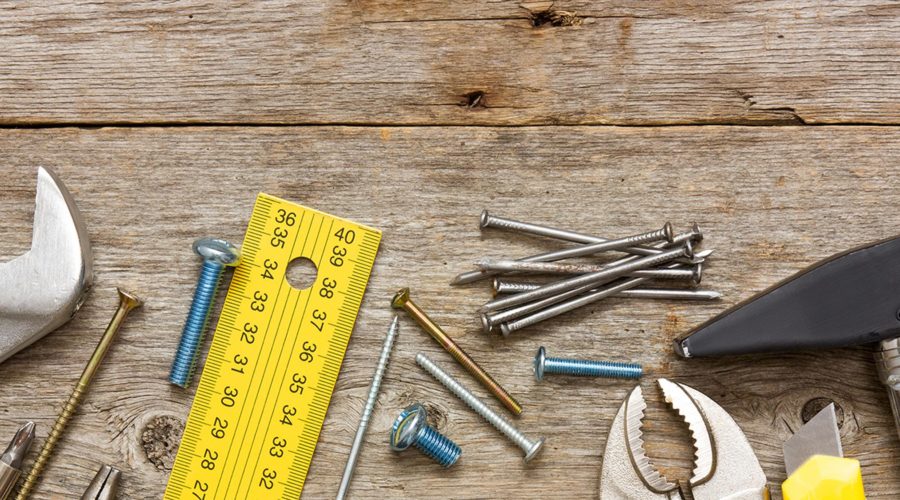4 Hazards You Might Not Be Thinking About While Renovating Your Kitchen
Today, home projects are becoming extremely “do-it-yourself” due to the ability to share tutorials and expertise online and to one’s smartphone. The kitchen is a very common area where change is targeted in a home. However, one thing that goes missing when renovating aspects of your home by yourself, and that is safety!
There are many hazards that one can be exposed to when remodeling, renovating, or even updating the exteriors of your kitchen. It is important to remember to stay safe while working on these projects, and there are numerous hazards to be aware of.
Hazards To Be Aware Of When Renovating:
1. Stains/Finishes
Staining and putting finishing touches on woods throughout your kitchen isn’t a difficult process. It can also make your wood products in your kitchen stand out and look sharp. Most stains are highly flammable and all flames should stay away from the area. Most stains and finishes can also also cause damage if inhaled or gets into your eyes.
It is recommended to use vapor-less wood staining and finishing products such as PureColor’s products. These newer products are safe for the environment and the people, children, and animals around it!
Recommendations:
- Safety glasses to keep out of eyes.
- Gloves to avoid staining your skin.
- Ventilation and using vaporless products.
2. Asbestos
Asbestos is a naturally occurring material that is extremely common in older homes built before the 1980’s. It can be found as insulation in walls, floors, and ceilings of kitchens and it is important to know if your home contains asbestos before knocking down or cutting into those areas. When properly installed and enclosed, asbestos poses no risk. However if exposed to the air, the fibers of asbestos can easily get inhaled. When inhaled, these fibers can get lodged in the lung(s) and cause serious health problems such as mesothelioma and lung cancer.
It is strongly recommended to get asbestos inspected or removed by a professional, as any exposure can lead to health issues. Many professionals need licenses to remove asbestos!
Recommendations:
- Knowledge of whether or not asbestos is in your home.
- If unexpected, clear area immediately and contact a professional.
3. Formaldehyde
Formaldehyde is also natural and all wood species contain smaller amounts of the chemical. Since many kitchen products contain composite wood, which contain Formaldehyde. It has been called a carcinogen and can cause cancer.
Recommendations for cutting into formaldehyde products would be to wear a mask to prevent from the levels of exposure. In addition, use air conditioning and dehumidifiers since the rate at which the chemical is released is accelerated by heat. In addition, more ventilation will help as well. The EPA did release a new regulation to reduce exposure to formaldehyde in December, so new products will contain less of the chemical.
Recommendations:
- Ventilation when cutting into wood products that contain formaldehyde.
- Dehumidifiers and air conditioning to reduce the rate of release.
- Mask to limit the amount of the chemical breathed in.
4. Dust
The last hazard in your kitchen that you might overlook is dust. Dust is everywhere and impossible to stay away from especially during a remodeling project. When taking apart cabinets, removing tile, or cutting into or demolishing walls, dust will be abundant in the air. This dust usually contains waste from small animals and bugs and silica in drywall. Since you will be breathing this in, it can be hazardous. Too much exposure can result in illness or lung problems in the distant future.
Some of the top tips include investing into power tools that have dust extractors intact to them. In addition, air scrubbers can be bought and barriers can be put up to prevent the amount of dust that is airborne in the kitchen.
Recommendations:
- Mask to limit the amount of dust breathed in.
- Invest in air scrubbers and power tools with dust extractors attached.
- Put up dust barriers to contain dust.
Conclusion
There are plenty of great online sources such as the EPA to educate yourself if you are unsure of a potential hazard before remodeling your kitchen. It is always best to do your homework before you start and ensure safety for yourself and your family! We wish you the best of luck with all your projects and remember to stay safe!

